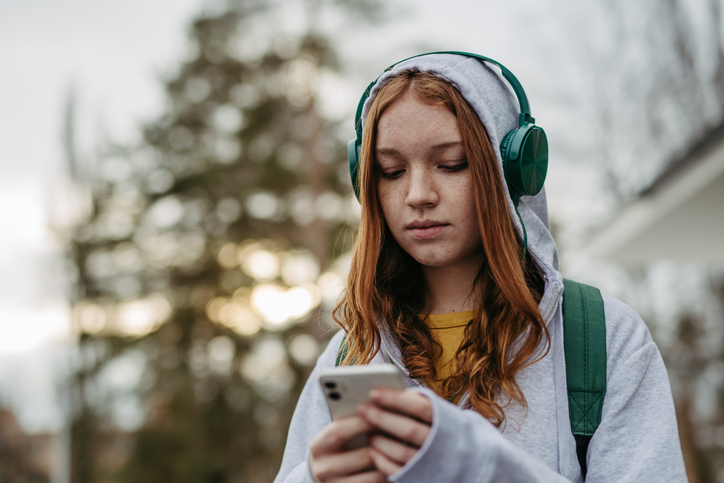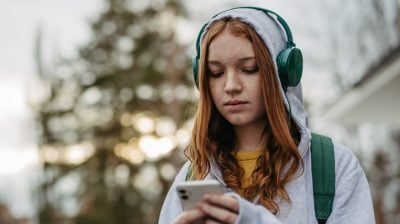How to handle loneliness
Learn more about how to cope with long-term loneliness.

Loneliness is a feeling you may experience if you have few or low-quality relationships. Loneliness describes your internal experience rather than what is going on around you. Unlike social isolation, which refers to being physically apart from others, you can feel lonely even when surrounded by people. This happens when your relationships do not satisfy your emotional needs, such as your need for closeness or meaning, or feeling seen.
Read more about loneliness in our article on the difference between loneliness and social isolation.
What is making me feel lonely?
Everyone feels lonely from time to time, and it is normal to experience different levels of loneliness at different stages of life. Usually, when we feel lonely, it passes quickly. However, long-term loneliness can cause emotional and mental distress, affecting both your physical and mental health. If you’ve been feeling lonely and want to do something about it, it can help to think about what is causing you to feel lonely. In some cases, you may be able to address the things within your control. However, loneliness can also be caused by broader social, cultural, political, or economic factors that are harder to change on your own.
Loneliness usually has multiple causes, and some of these will be outside of your control. However, there will be other changes you can make to help you feel less lonely.
Tackling the causes of your loneliness
There are many reasons people might find social interaction difficult that have nothing to do with their social skills, such as meeting people in an unfamiliar place or trying to make conversation while feeling overwhelmed, exhausted or anxious. However, if you feel you struggle with certain aspects of socialising, you may want to work on skills like communicating what you mean or showing that you understand the perspective of the other person.
You can learn more about building your empathy toolkit and responding to people online with Empathy Online, a spunout academy’s online learning course.
Understanding that people communicate in different ways
Social skills can help people feel more confident and connect more easily with others. Bear in mind that everyone processes information differently, and this can impact how a person communicates. It can also make understanding each other tricky sometimes. What seems like good social skills to you may not match someone else’s idea of good social skills.
Finding the right community for you
Identifying your specific challenges with interacting and building relationships is often easier when you’re in a social environment where you feel comfortable. After finding a space where you feel accepted, you may realise that social skills weren’t the barrier after all—perhaps it was the other setting was not right for you. However, if you still find socialising difficult, you are now in a position to work on these specific challenges with people you trust.
Trying to learn social skills to fit into a community where you don’t feel at home may not help you feel less lonely in the long run. However, you might thrive in a group of like-minded people, such as within neurodivergent or LGBTQI+ communities.
LGBTQI+ safe spaces
BeLonG To’s youth groups are safe spaces for LGBTI+ young people to meet, share experiences, and chat. Their groups are now being delivered virtually. Find your nearest LGBTI+ youth group on the BeLonG To website. Youth Work Ireland and Foróige also provide a number of safe and supportive spaces for young LGBTI+ people to meet and celebrate their identity.
Neurodiversity-affirming spaces
As I Am, Ireland’s autism charity, offers a number of online and in-person social hang-out groups for autistic adults through their Autistic Adult Support & Wellbeing Programme. You can find out more information about these groups on the As I Am website.
ADHD Ireland offers online and in-person support groups for adults with ADHD. You can find more information about these groups on the ADHD Ireland website.
Finding places to meet people
It’s hard to improve your social skills without access to safe social spaces. That’s why increasing opportunities for meaningful social contact is so important. Online communities can be a great way to connect with others —even if you live in a remote area with limited transport links or in a place where few people share your particular background or set of experiences. Some ways to meet new people include:
- Volunteering or joining community engagement projects
- Participating in befriending or mentoring programmes at work, school, or university
- Joining online communities based on your hobbies and interests
- Taking part in local clubs, classes, or sports teams
- Joining support groups for shared experiences or identities
- Going to social events hosted by different ethnic/racial, neurodivergent, or LGBTQ+ communities
Joining clubs and groups
Connecting with community-based groups and activities can help you to make friends and support your wellbeing. Below are examples of some communities:
- Foróige Youth Clubs are a safe place for young people to hang out, meet new friends, get involved in activities and have a voice. If you are aged 12-18, there are lots of different clubs and activities you can get involved in. If you’re over 18 you can also volunteer with Foróige
- Men’s Sheds are community-based projects, where men can come together to learn, share skills and make long-lasting friendships together. They have groups all over the country
- Macra na Feirme are a community of 17-40 year olds from 170 clubs in rural Ireland. They aim to create a community of rural youth and young farmers where you will be welcomed into a fun, vibrant community, access personal development opportunities and have your voice heard. There are annual membership fees to join, starting at 67c per week
- Volunteer Ireland and Activelink are organisations highlighting volunteer opportunities in your area. Getting involved in local charities could give you the ability to connect with new people in your community and build confidence through developing new skills
Joining the spunout action panel
Each year, spunout looks for 16-25 year olds in Ireland to join the spunout Action Panel and help shape the direction of Ireland’s youth information and support platform. Getting involved with the spunout Action Panel is a great way to meet other young people while having your voice heard.
As a youth-led organisation, our Action Panel members help shape the topics we cover and the decisions we make. By joining, you’ll have the chance to connect with like-minded people, talk about the issues that matter to you, attend events, and gain new experiences—all while making a real impact.
Read more about joining the spunout action panel.
Deepening the quality of your relationships
Loneliness isn’t always caused by a lack of social contact or too few relationships. Even with multiple connections, you can feel lonely if your social and emotional needs aren’t being met. These needs might include feeling accepted, expressing thoughts and emotions without fear of judgment, and seeking emotional support during difficult times. Meaningful relationships provide a sense of safety through trust, dependability, and empathy, making deeper connections possible.
Developing close, dependable relationships takes time and effort. It often requires opening up rather than hiding parts of yourself. Whether forming new relationships or deepening existing ones, connection is always possible.
Being able to communicate, understand your emotional needs, and set clear boundaries can help you to build strong friendships. Knowing what types of treatment or behaviour you won’t accept and what others shouldn’t accept from you can also help you build friendships. This understanding can also help you sit with uncomfortable feelings, especially during difficult conversations or conflicts, which are a natural part of close relationships.
Learn more about active listening, having difficult conversations, and emotional regulation to strengthen your connections.
Recognising what stops you from making deeper connections
Social isolation and loneliness can be caused by things outside of your control such as discrimination, stigma, social exclusion based on identity, bullying, chronic illness or disability, poverty, and housing insecurity.
These challenges can make it difficult to form or deepen relationships, and negatively impact your self-confidence.
Certain patterns in how you see yourself and relate to others can also make it difficult to build meaningful connections.
These patterns might include:
- Low self-esteem
- Believing you are somehow lesser than others because of your identity
- Thinking that you are lonely because you are not worthy of friendship or deeper connection
- Social anxiety disorder
- Fear of vulnerability or rejection
- Difficulty trusting others due to past traumatic experiences
Recognising these challenges can be a first step towards finding ways to build more meaningful relationships.
Read more on how to have more meaningful relationships.
Acknowledging causes of loneliness outside your control
There are causes of loneliness that you cannot easily fix or resolve. For example, if you belong to a marginalised or ethnic group, you may face loneliness due to social exclusion or stigma—challenges that require change at a wider societal level. Similarly, if you live with a chronic physical illness or long-term mental health difficulties, there may be times when your condition limits social opportunities in ways that feel outside your control.
Learning to practise self-compassion in the face of these experiences is just as important as addressing the causes of loneliness that you can change. Seeing a counsellor or psychotherapist can help you to create a space to process the emotional and psychological impact of these challenges.
Reaching out for emotional support
If you’re feeling lonely, talking to someone you trust—like a family member, teacher, or another supportive adult—can help. Opening up about how you’re feeling might feel difficult, but having someone listen and offer support can make a real difference. Even if they can’t fix the situation, knowing you’re not alone can be reassuring.
Feeling overwhelmed and want to talk to someone?
- Get anonymous support 24/7 with our text message support service
- Connect with a trained volunteer who will listen to you, and help you to move forward feeling better
- Whatsapp us now or free-text SPUNOUT to 50808 to begin.
- Find out more about our text message support service
If you are a customer of the 48 or An Post network or cannot get through using the ‘50808’ short code please text HELLO to 086 1800 280 (standard message rates may apply). Some smaller networks do not support short codes like ‘50808’.





